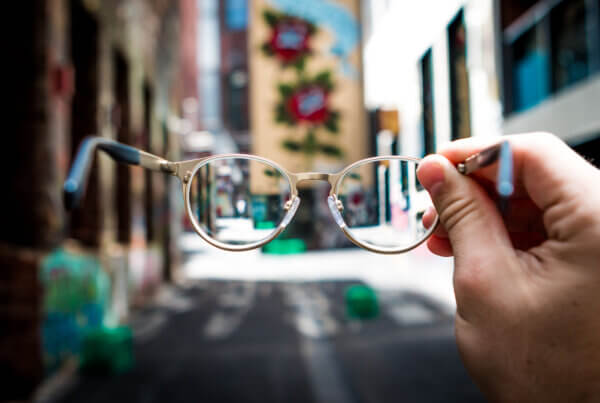Learn about Eye Allergies: Symptoms, Treatments, and More
Sneezing and a runny nose aren’t the only symptoms of allergy problems. Often, people experience eye allergies symptoms as well, making it hard to get through allergy season. Whether you have allergies during certain seasons of the year, or you have this reaction when you are around animals or other triggers, it is important to consider treatment options.
Eye Allergies Symptoms
Allergy symptoms can vary depending on the person, but these are some of the most common symptoms that occur when someone is suffering from eye allergies:
- Itchy eyes
- Redness
- Excess tears
- Swelling around the eyes
- Dry eye sensation
- Overall eye irritation
- Light sensitivity
- Soreness in the eye area
In most cases, eye allergy symptoms happen at the same time as general allergy reactions. For example, you might notice that you are frequently sneezing or your nose is runny.
Causes of Allergies
What causes your eye allergies to flare up? Your immune system is gearing into overdrive to combat the triggers that are in the environment. The immune system works as a defense mechanism for your body. When the allergy trigger is present, then the body releases histamine, which causes inflammation and swelling. This reaction causes the blood vessels in the eye to swell, resulting in eye redness and other irritation.
Allergies typically fall into a few categories:
- Seasonal Allergies: Usually flares in the spring and summer months because of the pollen in the air. Pollen production could be from the trees, weeds, grasses, or flowers in your local area. Seasonal allergies can worsen depending on your location and the severity of the airborne compound that causes the reaction.
- Chronic Allergies: On the other hand, some people experience allergies all year long. Instead of the trigger coming up in a certain season, there are triggers that can occur regardless of the weather outside. Your triggers might be pet dander, mold, dust mites, features, or other indoor allergens.
- Beauty Product Allergies: Sometimes, the allergy symptoms might be happening because of things that come in contact with the eyes. For example, you might experience eye allergies from makeup every time you try to apply mascara or put eye shadow on your eyelids. The makeup products might contain ingredients that irritate your eyes and cause the symptoms to occur. Sometimes, switching products can help, especially if you choose a natural brand that is free of perfumes and irritants. Other beauty products can cause eye irritation, even if they don’t come in direct contact with the eyes (such as perfume).
- Contact Lens Allergies: In rare cases, people experience eye allergies from contacts. You might be allergic to the contact lens or the solution used to clean the lenses. Or, you could be experiencing seasonal allergies that worsen when you are wearing contact lenses because the irritants are held on the eye due to the contact lens.
What to Do About Eye Allergies
When the symptoms are new, sometimes it is hard to tell if you are experiencing eye allergies or an eye infection. If you don’t know the source of the irritation, try rinsing out your eye gently with water. It is also a good idea to talk to an eye doctor if the symptoms don’t go away after rinsing the eye.
Even if you are careful about caring for your contact lenses, it is still possible that your eyes can become irritated when you are wearing the lenses. If any type of irritation continues to bother your eyes, then the best solution is to consult with an experienced optometrist to avoid damage to your eyes.
Treatment for Eye Allergies
What should be done if you are suffering from itching, red, swollen eyes? Treatments are available, which is why you shouldn’t hesitate to talk to an optometrist for recommendations. Here are a few common treatments that might be used to reduce the eye allergy symptoms:
- Antihistamine Pills: Over the counter medication can be used to reduce the histamine reaction in your body, helping to decrease the allergy symptoms. Always talk to your doctor and/or a pharmacist about the active ingredients to ensure you don’t have a negative response due to using multiple medications at the same time. Also, keep in mind that some antihistamines cause drowsiness, so you might consider taking the dose at night before going to bed.
- Antihistamine Eye Drops: Another option is to use an antihistamine in dropper form. These eye allergy drops work great if your symptoms are excess tears and itchiness. It is important to know that these over the counter drops usually shouldn’t be used for more than 2 or 3 days at a time. If you have ongoing symptoms, then it is a sign that you need to talk to an eye doctor. For severe eye allergies, prescription eye drops might be recommended.
- Decongestant Eye Drops: If you are looking for a solution to reduce the redness of your eyes, consider using decongestant eye drops. These drops are over the counter and they work by shrinking the swollen blood vessels. As with the other eye drops, they shouldn’t be used more than a few days at a time.
Natural Ways to Reduce Eye Allergy Symptoms
Are you looking for a natural way to reduce the irritation in your eyes? You don’t need to use medication all the time. Consider some of these natural methods to decrease your eye allergies symptoms:
- Indoor Air Filter: Try using a high-quality filter in your home to reduce the airborne allergens in the room.
- Lubricating Eye Drops: Sometimes, lubricating eye drops are sufficient for relief. These products are designed to flush the eyes, wash out allergens, and moisten your eyes.
- Wear Sunglasses: When you go outside, add protection by wearing sunglasses. The lenses help to block some of the outdoor allergens and pollen from coming in contact with your eyes.
- Rinse the Eyes: When the symptoms are severe, try rinsing the eyes with water. Sometimes it can help to apply a cool, wet washcloth to reduce the swelling.
- No Contact Lenses: Do you find that the allergy symptoms worsen when wearing your contact lenses? Try giving your eyes a break for a few days to see if you find relief.
Also, keep in mind that it is important to avoid rubbing or touching your eyes excessively. If you have allergens on your hands, then you might introduce those compounds into the eyes when the eyes are touched.
Talk to Our Team About Eye Allergy Treatments
There’s no reason to suffer from eye allergies symptoms. Contact us right away so that we can help you find the treatment that will work best for your needs. Call today (773-360-8900) to schedule an exam and learn more.






